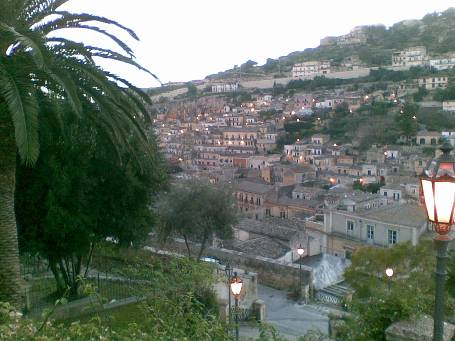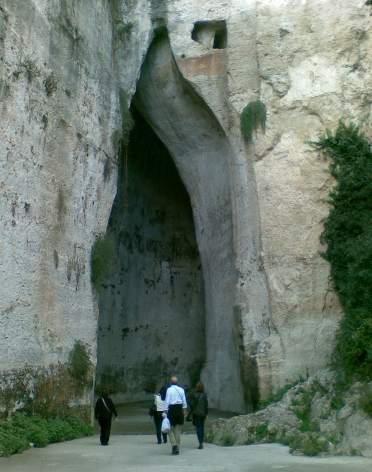
Modica, a comune in the Province of Ragusa, Sicily. It was the original Greek polis of Μότουκα. It's my picture. I give it to the public domain (the next one too)
[I asked Mario and Extropian for some fun. They helped me to write what I was too lazy to write]
Ψ
Along We Are, Together On A Journey
I often try to learn and teach to myself and to others. I’ve always been a teacher.
“A misguiding one” Mario and Extropian are telling me now.
Well, my readers are adult and vaccinated and have supported this rogue of Rome. With only 139 posts to date (a book of 400 pages?) we’ve been engaged in conversations totalling more than 2,300 comments, many of which extremely long (a book of 1500 pages just the comments? More? Less?)
So dear readers, you surely have accompanied me on a mind journey mixing past and present and starting from the viewpoint of a homo medius de Roma. And mind: the journey has just begun.
Brushing Up Ancient Greek And Latin
Since its beginning my research assumed a brushing up of the Ancient Greek and Latin languages, among the rest. Of them I had knowledge albeit rusty and forgotten mostly, after 16 years of Information Technology.
Latin and Greek are important to understand the Greco-Romans.

The Ear of Dionysius carved out in Syracuse's limestone (Sicily). Dionysius I (432–367 BC) used the cave as a prison and possibly liked to hear the amplified screams of his prisoners. The Latomìe close by, made of the same limestone, were the horrible stage where the flower of the Athenian youth found its death.
Not that those who can’t read these 2 languages are not capable of understanding antiquity. I’m not saying that. As for my experience I understood enough of the Russians just by reading their great novels in Italian.
However, it is undeniable, the feel of a folk a language can provide is not only part of the fun of any journey, whether in space or time. Such feel also transmits deep experiences that, in a world increasingly shallow, are precious currency beyond any doubt – or so it seems to me.
Big Poems. Two, Actually
Mario [*exasperated*]: “You wanna defeat Latin and Greek at your age and MAKE US ALL CRAZY??? You wanna do that??? Tell us WTH is your dirty little secret for miracles then.”
MoR: Oh, my dirty little secret. I have a couple. So do me the favour to listen to me:
I propose the construction of two long gradual poems, one in Latin and one in Greek.
How? Via the assemblage of wisely picked passages from the two respective literatures.
With bits of motivation (and dogged spirit) Latin and Greek will be leisurely, leniently, delicately (and deeply) SHOT into our blood, electrifying it wholly.
Extropian: “WOW! Electricity into BLOOD! How stupid of me not having thought of that.”
Poetry is Music, Pure Magic
I like poetry immensely, also because it is so close to music. Months ago I met this blog of poems from a certain ‘Woman in a window‘.
“Wow – I said – this woman knows how to reverberate esoteric emotions through words. I adore her and want to write poems too.”
Not that easy, I can’t. And not just in this hyperborean language, but in my own native bastard Latin neither.
Collage game. So I invented the ‘collage game’. I did a little experiment with Walt Whitman, one of my favourite poets.
Every game has its rules. Here were mine:
1) Collection of emotional verbal materials (CEVM). One randomly leafs through Walt Whitman’s (or any other poet’s) pages and when something strikes an emotional note one jots it down and continues until ‘emotional materials’ collected are enough to make her/him happy.
2) Assemblage of collected (emotional) materials (ACEM). After collecting it’s due time for assembling. Lines get broken down to attain rhythms following our whims plus we add editing. That all should suit our mood & taste is crucial since, if we comply to CEVM and ACEM, the final outcome will magically reflect our feelings and result in sincere poetry expressed with gorgeous words.
COOL isn’t it? Poetry made easy through plagiarism.
Ψ
Extropian: “You will be caught.”
Mario (the Neapolitan): “Caught? Everybody is stealin’ from everybody man. Go ahead!”
MoR: “Whitman is long buried and won’t protest but don’t want to wrong him. It was only an experiment, 80% Whitman, 20% me. Emotions? Fifty-fifty possibly. I had pig flu so I was down. It influenced the tone making it all compliant with CEVM and ACEM btw.
BUT, the whole point is THE experiment, not the result (bad).”
Extropian: “Actually I don’t see the point of the experiment.”
MoR: “Me neither, would I be Man on Roma if I did? Now shut that helluva mouth up and listen to my canzone.”
Ψ
I raise a voice to sing today
With foreign words
A song.
I would like to sing the amplest of poems
And to say of the moon that descends on the Capitol.
But I am no man, my strength is dried up.
“Lift up your head man.”
Oh my strength is dried up
And I am confounded,
My body in deep pain.
“Lift up your heart you man.”
Oh but I am a worm, no man, and
Who are you by the way
to talk to me like that?
[MoR gets upset a bit, but the voice fades away, never to be heard]
Whoever you are I will say:
He’s no man
Whose life was consumed
with chimeras and dreams
and with etc. etc. etc.
Ψ
Two Gradual Ancient Poems Going Backwards
Leaving Whitman behind, our 2 poems will be assembled so as to be gradual in their difficulty, from the easiest to the hardest. We’ll go backwards in time, starting from late debased Latin & Greek [the Greek Septuagint and the Jerome’s Vulgate translations of the Bible] that are much closer to modern languages, hence a lot easier (baby’s talk often, compared to Plato or Cicero.) We’ll then gradually proceed towards the most pure and classical.
Mario: “A dantesque ascent from impurity to purity?”
MoR: “No, no, only in language, not content. How can the Bible be impure? Although from a strict linguistic viewpoint the progression from impurity to purity is undeniable.
Mario: “You wanna disrupt phrases and words as you did with Whitman?”
MoR: “No. Whitman was just an experiment. The 2 poems will be respectful of the originals. The collage will only imply a choice sequence of appropriate passages – we’ll see along the way.Readers as well – it is important – will be asked to contribute with passages chosen by them.
We’ll build 2 long poems. It will be fun!”
Extropian: “And the grammar? Nobody learns a language by hurling headlong on texts without any formal preparation.“
MoR: “THAT’s my dirty secret, what did you think? Read my post on the nonconscious acquisition of languages.”
The two draft poems are about to arrive.
(to be continued)




